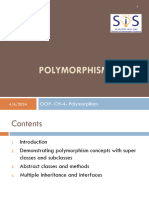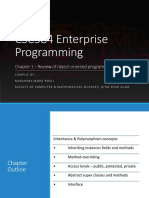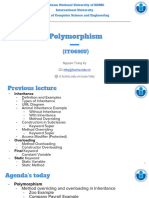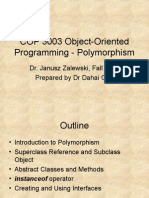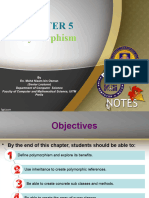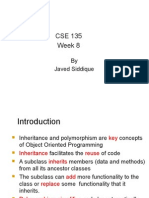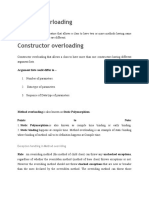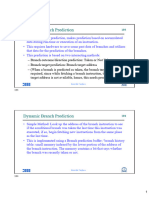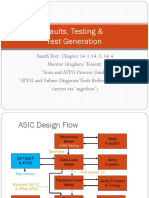0% found this document useful (0 votes)
5 views47 pagesTopic 6 Polymorphism
Chapter 6 discusses the concept of polymorphism in object-oriented programming, highlighting its ability to allow a single variable to refer to objects from different subclasses. It covers abstract classes and methods, method overriding, and the use of superclass arrays to hold objects of different subclasses. The chapter emphasizes the advantages of polymorphism, such as flexibility and ease of modification in programming.
Uploaded by
sazuntemaviraCopyright
© © All Rights Reserved
We take content rights seriously. If you suspect this is your content, claim it here.
Available Formats
Download as PDF, TXT or read online on Scribd
0% found this document useful (0 votes)
5 views47 pagesTopic 6 Polymorphism
Chapter 6 discusses the concept of polymorphism in object-oriented programming, highlighting its ability to allow a single variable to refer to objects from different subclasses. It covers abstract classes and methods, method overriding, and the use of superclass arrays to hold objects of different subclasses. The chapter emphasizes the advantages of polymorphism, such as flexibility and ease of modification in programming.
Uploaded by
sazuntemaviraCopyright
© © All Rights Reserved
We take content rights seriously. If you suspect this is your content, claim it here.
Available Formats
Download as PDF, TXT or read online on Scribd
/ 47








